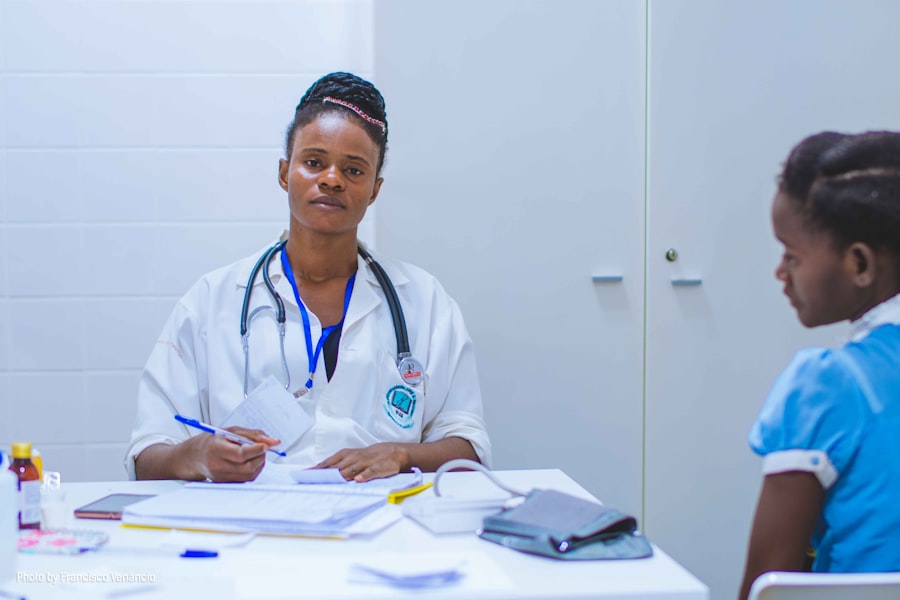In recent years, the landscape of medical research has evolved significantly, leading to an increased interest in paid medical studies. These studies, often conducted by pharmaceutical companies, universities, or research institutions, offer financial compensation to participants in exchange for their involvement in clinical trials or observational research. The allure of earning money while contributing to the advancement of medical science has attracted a diverse range of individuals, from students seeking extra income to retirees looking for meaningful engagement.
The compensation can vary widely depending on the nature of the study, the time commitment required, and the specific health conditions being investigated. Paid medical studies serve a dual purpose: they provide researchers with essential data needed to develop new treatments and therapies while offering participants a financial incentive. This symbiotic relationship is crucial in a world where funding for medical research is often limited.
As the demand for innovative healthcare solutions continues to grow, so does the need for willing participants who can help bring these solutions to fruition. Understanding the intricacies of these studies, including how to find them and what they entail, is essential for anyone considering participation.
Key Takeaways
- Paid medical studies offer financial compensation for participation in clinical research.
- Finding and applying involves researching reputable studies and meeting eligibility criteria.
- Participants should weigh potential health risks against benefits before enrolling.
- Various study types, including drug trials and device testing, commonly provide payment.
- Engaging in paid studies can contribute to scientific progress while providing income.
How to Find and Apply for Paid Medical Studies
Finding and applying for paid medical studies can be a straightforward process if one knows where to look. Numerous online platforms and databases specialize in listing clinical trials and research studies that offer compensation. Websites such as ClinicalTrials.gov provide comprehensive information about ongoing studies, including eligibility criteria, locations, and contact details for researchers.
Additionally, local universities and hospitals often have dedicated research departments that post opportunities for participation in studies. By regularly checking these resources, potential participants can stay informed about new studies that align with their interests and qualifications. Once a suitable study is identified, the application process typically involves filling out a screening questionnaire to determine eligibility.
This questionnaire may ask about medical history, current medications, lifestyle factors, and other relevant information. It is crucial for applicants to be honest and thorough in their responses, as this information helps researchers ensure participant safety and study integrity. After passing the initial screening, candidates may be invited for an in-person interview or further assessments to confirm their suitability for the study.
This step is vital as it allows researchers to gauge not only the physical health of participants but also their understanding of the study’s requirements and potential risks.
Understanding the Risks and Benefits of Participating in Medical Studies

Participating in medical studies comes with its own set of risks and benefits that potential participants must carefully consider. On one hand, the benefits can be substantial. Participants often receive access to cutting-edge treatments or therapies that are not yet available to the general public.
This can be particularly appealing for individuals with chronic conditions or those who have exhausted conventional treatment options. Additionally, participants may receive comprehensive medical evaluations and monitoring throughout the study, which can lead to early detection of health issues or improvements in their overall well-being. Conversely, there are inherent risks associated with participating in clinical trials.
These can range from mild side effects related to experimental treatments to more severe adverse reactions that may not have been fully understood prior to the study’s initiation. Participants must also consider the possibility of receiving a placebo instead of an active treatment, which can be disheartening for those seeking relief from their conditions. Furthermore, the commitment required for some studies can be significant, involving multiple visits to research sites or extensive time spent on follow-up assessments.
It is essential for individuals to weigh these factors carefully and engage in open discussions with study coordinators to fully understand what participation entails.
Types of Medical Studies that Offer Payment
| Type of Medical Study | Purpose | Typical Payment Range | Duration | Participant Requirements |
|---|---|---|---|---|
| Clinical Trials (Drug Testing) | Test new medications for safety and efficacy | 100 – 5000 | Weeks to Months | Specific health condition, age range |
| Medical Device Studies | Evaluate new medical devices or equipment | 200 – 3000 | Days to Months | Varies by device, often healthy volunteers |
| Behavioral Health Studies | Study psychological or behavioral interventions | 50 – 1000 | Hours to Months | Varies, often healthy or specific populations |
| Vaccine Trials | Test vaccine safety and immune response | 150 – 4000 | Months to Years | Healthy volunteers, specific age groups |
| Genetic Studies | Research genetic markers and diseases | 50 – 1500 | One-time or ongoing | Family history or specific traits |
| Diet and Nutrition Studies | Assess effects of diet on health | 100 – 2000 | Weeks to Months | Healthy or specific health conditions |
The types of medical studies that offer payment are diverse and cater to various health conditions and research objectives. Clinical trials are perhaps the most well-known category, focusing on testing new drugs or therapies for efficacy and safety. These trials often involve multiple phases, with each phase designed to answer specific research questions.
For instance, Phase I trials typically assess safety and dosage levels in a small group of healthy volunteers before progressing to larger populations in subsequent phases. In addition to drug trials, there are also observational studies that examine health outcomes without administering any treatments. These studies may focus on lifestyle factors, genetic predispositions, or disease progression among different populations.
Participants in observational studies may be compensated for their time spent completing surveys or attending follow-up appointments. Furthermore, some studies investigate medical devices or diagnostic tools, offering payment for individuals who agree to use these products under controlled conditions. Each type of study presents unique opportunities for participants while contributing valuable data to the scientific community.
Tips for Maximizing Earnings from Medical Studies
For those looking to maximize their earnings from participating in medical studies, several strategies can be employed. First and foremost, individuals should consider enrolling in multiple studies simultaneously, provided they do not overlap in terms of time commitment or eligibility requirements. This approach can significantly increase overall earnings while allowing participants to diversify their experiences within different research contexts.
Additionally, staying informed about new studies through newsletters or social media channels dedicated to clinical research can provide an edge in finding lucrative opportunities quickly. Many research institutions offer referral bonuses for participants who bring in friends or family members, creating an additional avenue for income generation. It is also wise to thoroughly read the compensation details outlined in study protocols; some studies offer higher payments for specific conditions or require more intensive participation.
Moreover, maintaining good health can enhance eligibility for a broader range of studies, as many trials have strict inclusion criteria based on physical well-being. Participants should also keep track of their experiences and feedback from previous studies; this information can be valuable when applying for future trials as it demonstrates reliability and commitment to researchers.
The Impact of Participating in Medical Studies on Advancing Science

The impact of participating in medical studies extends far beyond individual compensation; it plays a crucial role in advancing scientific knowledge and improving public health outcomes. Clinical trials are essential for determining the safety and efficacy of new treatments before they can be approved for widespread use. Each participant contributes valuable data that helps researchers understand how different populations respond to various interventions, ultimately leading to more personalized and effective healthcare solutions.
Moreover, medical studies often pave the way for groundbreaking discoveries that can change the course of treatment for numerous diseases. For example, the development of life-saving medications such as antiretrovirals for HIV/AIDS was made possible through extensive clinical trials involving thousands of participants who volunteered their time and health for the greater good. The insights gained from these studies not only benefit current patients but also inform future research directions and healthcare policies.
Additionally, participation in medical studies fosters a culture of collaboration between researchers and communities. Engaging diverse populations in research helps ensure that findings are applicable across different demographics, addressing health disparities that exist within society. By participating in these studies, individuals become active contributors to a collective effort aimed at improving health outcomes for all.
Testimonials from Participants in Paid Medical Studies
Hearing firsthand accounts from individuals who have participated in paid medical studies can provide valuable insights into the experience and its impact on their lives. Many participants express a sense of fulfillment from contributing to scientific advancements that could potentially help others facing similar health challenges. For instance, one participant shared how enrolling in a clinical trial for a new diabetes medication not only provided them with financial compensation but also allowed them access to cutting-edge treatment options that improved their quality of life.
Others highlight the rigorous monitoring and care they received during their participation as a significant benefit. A participant involved in a cardiovascular study noted that regular check-ups and consultations with healthcare professionals helped them better manage their condition while providing peace of mind regarding their health status. These testimonials underscore the dual nature of participation—while financial incentives are appealing, many individuals find intrinsic value in being part of something larger than themselves.
However, not all experiences are without challenges. Some participants recount instances where they faced unexpected side effects or felt overwhelmed by the demands of the study protocol. These stories serve as important reminders of the need for transparency and thorough communication between researchers and participants regarding potential risks involved in clinical trials.
The Future of Paid Medical Studies
As we look toward the future of paid medical studies, it is clear that they will continue to play an integral role in advancing healthcare innovation. With ongoing advancements in technology and data collection methods, researchers are better equipped than ever to conduct comprehensive studies that yield meaningful results while ensuring participant safety and comfort. The increasing recognition of the importance of diverse representation in clinical trials will likely lead to more inclusive recruitment strategies aimed at engaging underrepresented populations.
Furthermore, as public awareness about clinical trials grows, more individuals may seek out opportunities to participate in paid studies as a way to contribute to scientific progress while earning supplemental income. This shift could foster a more collaborative relationship between researchers and communities, ultimately leading to improved health outcomes across various demographics. In conclusion, paid medical studies represent a unique intersection between personal benefit and societal advancement.
As both participants and researchers navigate this evolving landscape together, the potential for groundbreaking discoveries remains vast—offering hope not only for those involved but also for future generations seeking better health solutions.




